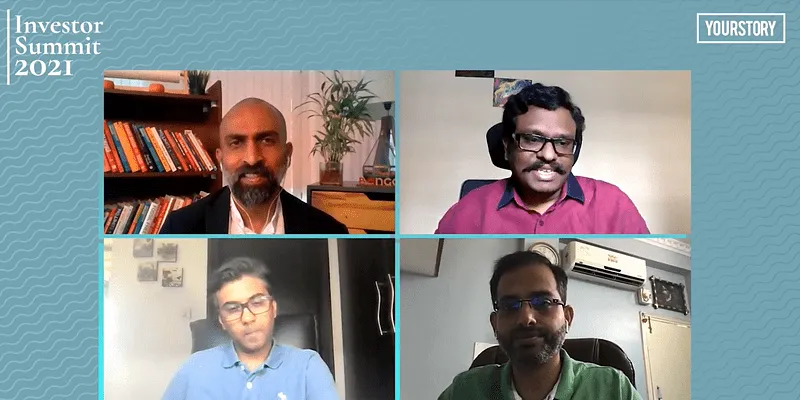[Investor Summit 2021] Decoding what investors want
Investors and ecosystem stakeholders came together to discuss valuations in the Indian startup ecosystem in a panel discussion titled ‘The Valuation Playbook’ at YourStory’s Investor Summit 2021.
If you keep track of the business community, you may have come across the word ‘valuation’. According to Google, it is the “professional judgement about how much money something is worth.” In the startup ecosystem, it continues to be a much-debated topic.
Investors and ecosystem stakeholders came together to discuss valuations in the Indian startup ecosystem in a panel discussion titled ‘The Valuation Playbook’ at YourStory’s Investor Summit 2021, and how founders can look beyond the rigmarole of valuations to create a greater impact in society.
Nitin Golani, Vice President of Growth Strategy and Corporate Development, BYJU'S, said that valuation is a combination of both art and science, and is also based on the future potential of an organisation. He added, “The future is largely uncertain and therefore, valuation is like putting a number on that uncertainty.”
Chinmaya Saxena, Venture Partner and Lead - Strategic Platform Initiatives, BEENEXT, has an interesting take on the whole valuation game. He said,
“Valuation is work in progress. It is like dating wherein we want to understand the founder.”
Chinmaya further added that as an investor, he evaluates a startup before investing by looking at four factors. The first is the internal part of the organisation like founders, their vision and passion, how much the team is aligned to the vision, etc. The second includes external factors such as market penetration, size of the market, and demand for the product.
The third includes the risks involved, and finally, the conviction of how the startup will fare after considering the other three factors.
Decoding the mindset of an investor
Contrary to popular belief, investors don’t expect fancy words or numbers, colourful presentations, from startup founders. They just want to understand their vision and how well this vision can be translated into numbers.
“As an investor, your antennas are wanting to hear a story, you are not thinking of valuation,” said Chinmaya, adding, “Startup founders should be thinking ‘What are the next set of milestones I want to achieve?’”
Chinmaya also believes that a startup should fundamentally know how to execute plans and “get things done.”
Vinod Shankar, Co-founder and Partner at Java Capital, ran a foodtech startup a few years ago but eventually shut shop. Recalling his own experience, Vinod said that there is no cookie-cutter approach to succeed. He said, “When I ran the foodtech startup, there was so much scrutiny and competition.”
He further elaborated that “founders should not throw some fancy numbers they have not really thought about.” He said that while it is fine for founders to translate their vision into words, investors also need “excel sheets and numbers.” “I ask founders to give me sales projections for the next three years,” Vinod said.
He added that he will not necessarily stick to these projections but he “needs to know what the founder is thinking.”
“We want to just ensure that the founders can think through the journey they are presenting to us,” said Chinmaya.

Worrisome trend of diluting control
One of the concerning trends in the Indian startup ecosystem is that of founders giving up equity to investors. Moreover, in some cases, the percentage of ownership that the founders give up even extends to 60-70 percent.
Nitin pointed out as well that in the bid to scale faster, founders feel giving up control to raise money is the go-to approach.
“The more equity you give away early on, the more it dilutes your ability to scale forward,” said Chinmaya.
Vinod said that this is a distressing trend in the country but startup founders need to understand that “a credible investor will always think in the interest of the company.”

Edited by Kanishk Singh


![[Investor Summit 2021] Decoding what investors want](https://images.yourstory.com/cs/21/e1da3a20368f11ea8ceed32dbcb77ccc/Imagesett-1617256064488.jpg?mode=crop&crop=faces&ar=2%3A1&format=auto&w=1920&q=75)
![[Investor Summit 2021] Here's how startups can drive growth using tech and innovation](https://images.yourstory.com/cs/2/98e25df018b511e988ceff9061f4e5e7/Imagedtur-1617196844978.jpg?fm=png&auto=format&h=100&w=100&crop=entropy&fit=crop)




